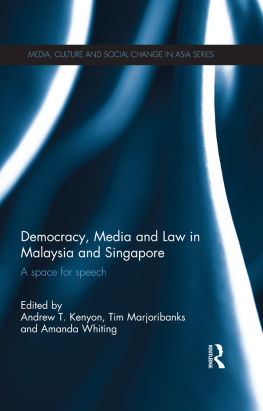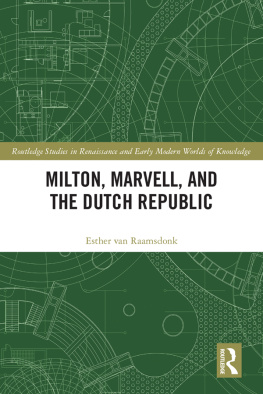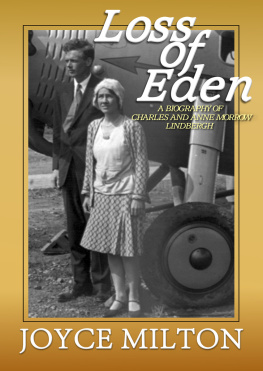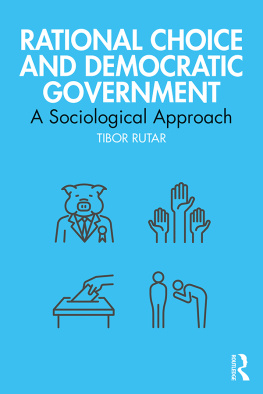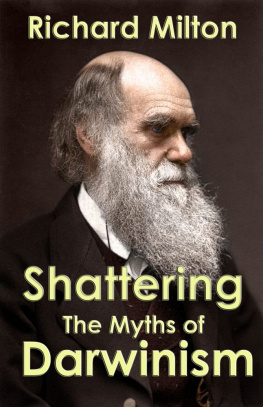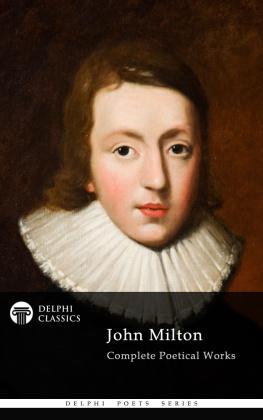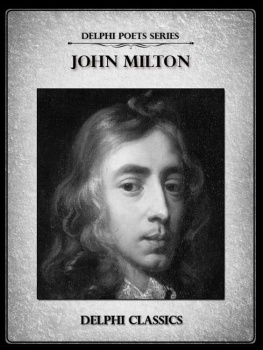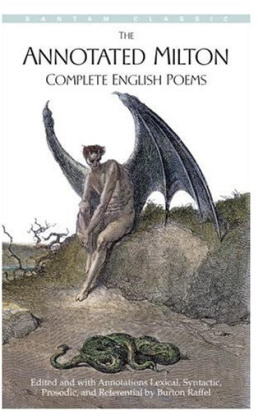The Rational Politician
For Mary, Jackson, and Miranda
First published 2000 by Ashgate Publishing
Reissued 2018 by Routledge
2 Park Square, Milton Park, Abingdon, Oxon OX14 4RN
711 Third Avenue, New York, NY 10017, USA
Routledge is an imprint of the Taylor & Francis Group, an iriforma business
Copyright Andrew K. Milton 2000
All rights reserved. No part of this book may be reprinted or reproduced or utilised in any form or by any electronic, mechanical, or other means, now known or hereafter invented, including photocopying and recording, or in any information storage or retrieval system, without permission in writing from the publishers.
Notice:
Product or corporate names may be trademarks or registered trademarks, and are used only for identification and explanation without intent to infringe.
Publishers Note
The publisher has gone to great lengths to ensure the quality of this reprint but points out that some imperfections in the original copies may be apparent.
Disclaimer
The publisher has made every effort to trace copyright holders and welcomes correspondence from those they have been unable to contact.
A Library of Congress record exists under LC control number: 99075561
ISBN 13: 978-1-138-70018-5 (hbk)
ISBN 13: 978-1-315-20489-5 (ebk)
A scholar more astute than myself once told me that in undertaking any argumentative academic work one has to walk a fine line between hubris and humility. An author has to be bold enough to say something, yet humble enough to know the limitations of what he or she can confidently claim, and cognizant of the contributions that others have made to the work. It is the latter that I would like to note here.
A number of people have contributed, in a variety of ways, to the work represented in this book. My deepest gratitude is to Patrick ONeil, who has read, reviewed, critiqued, (and probably sometimes wrapped fish with) more copies of this material than either of us can remember. Richard P. Suttmeier, who spent 2 years reviewing various elements, has probably read only ten or twenty fewer words of it. William Dorman got this whole project started when he oversaw a variant of this work as an MA thesis. Karl Fields and Don Share got lucky enough to read later and more polished elements. Priscilla Southwell, Steve Ponder, and Gerry Fry also reviewed earlier versions of the manuscript.
Various article versions of this work were also presented at numerous conferences, including the American Political Science Association meetings in 1995, the International Studies Association-West meetings in 1994, 1996, and 1997, and the Western Political Science Association meetings in 1998. I am grateful to all the participants who shared their responses at those panels.
Numerous people made (for lack of a better term) non-scholarly contributions to the work. My parents, Kent and Barbara Milton, have given 33 years (thus far) of support, without which accomplishments both greater and lesser than this book would not have been possible. In much the same way, Paul Milton, Margaret Kirn, Catherine Pierce, Matt Milton, and Mark Milton have helped make this book a reality. Ronald Mitchell gave several years of general scholarly advice and encouragement. Michael Mulivihill, for years, gave the kind of mentorly advice that only an uncle can give. Carl, Max, and Charli Sakari, and Velda Arnaud provided child care that eliminated the Ive got a toddler at home excuse for those times when the work moved slower than anyone ever thought possible.
Finally, I reserve my deepest gratitude for Mary, my wife, and Jackson, our son, for their patience with my fits, starts, and general (though I hope only occasional) distractedness. They shared the periods of frustration, now they share in the satisfaction of success.
Flagstaff, AZ
1
Introduction
Raw political powerwill be the decisive factor in determining how much freedom the media have. (Freedom Forum report on East Central Europe, 1990)
The process of media reform in post-communist East Central Europe has been a function of the struggle for power. Emergent political parties have competed not only for votes, but for authority over political institutions and the processes of their democratic reconstruction, with electoral victors claiming prerogatives over reform. The contemporary efforts to transform the former propaganda machinery of the communist party-state into free, independent, and/or public service media have been rife with a whole new range of political conflicts and controversies that one would have hardly imagined, given the airy pronouncements about the importance of the free press made by the new democratic politicians.
Solidarity activist and former Polish President Lech Walesa, for instance, once extolled the virtues of the free media, saying, I would not be a president without a free press. Czech playwright, former dissident, and now President Vaclav Havel has said, Freedom of the press is a prerequisite for democracy. Gyula Horn, leader of the former Hungarian communist party, renamed as the Socialist party, said, upon taking office as Prime Minister in 1994, that he expected and encouraged criticism in the media.
At the same time, however, Walesa, as President, took it upon himself to unilaterally dismiss, for apparently political reasons, the chief of national broadcasting, even though he had no explicit authority to do so. Horns government has unilaterally attempted reform in violation of Horns own partys commitment to a six-party consensus on the creation of new media law. Even Havel, the most revered of the dissident/politicians, has made vague pronouncements about media responsibility that could be read as dangerously reminiscent of exhortations to self-censorship. And, of course, such contradictions between rhetoric and action are not limited to these three individuals. In fact, such political behavior seems to be the rule, rather than the exception.
In the politics of media reform the redefinition of the states control over electronic media, the clarification of the rights and responsibilities of both print and electronic media, access to the mass media, etc., have all been subject to contention. These conflicts are probably best summarized by the controversy over the reconstruction of the party-state media into public service media that are to provide the politically important information necessary for democracy to function. The primary problem, from which was generated the recurring and almost insoluble nature of this conflict, resides in the interpretable nature of a concept such as public service. In post-communist East Central Europe, governments tend to see public service as broad media support of the government and judicious use of criticism, while oppositions tend to see public service as general media skepticism toward the government and the granting of increased media access to opposition politicians.
This conflict over defining the goals and parameters of reform is irresolvable inasmuch as the political actors making the decisions about what constitutes public service media are the same actors that will then play the political game whose rules they are constructing, and of which the public service media are a part. In other words, the new democratic political actors are not only fixing the bicycle while they ride, but they have both the opportunity and the incentive to fix it to ride toward the destination they prefer. The incentive comes from the desire to achieve political and electoral success, and the opportunity derives from the organizational resources available through the institutional connection of the media to the state and the political party running it. Despite rhetorical blandishments about free or public service media, political self-interest and commitments to abstract public interest often stand in conflict (though this is also somewhat dependent on who wins control of the definition of public interest.)



